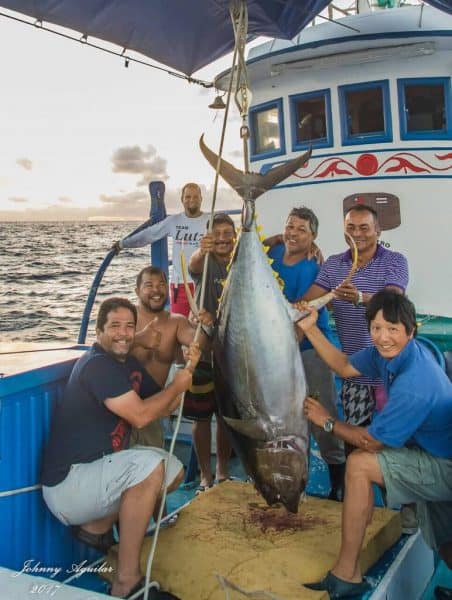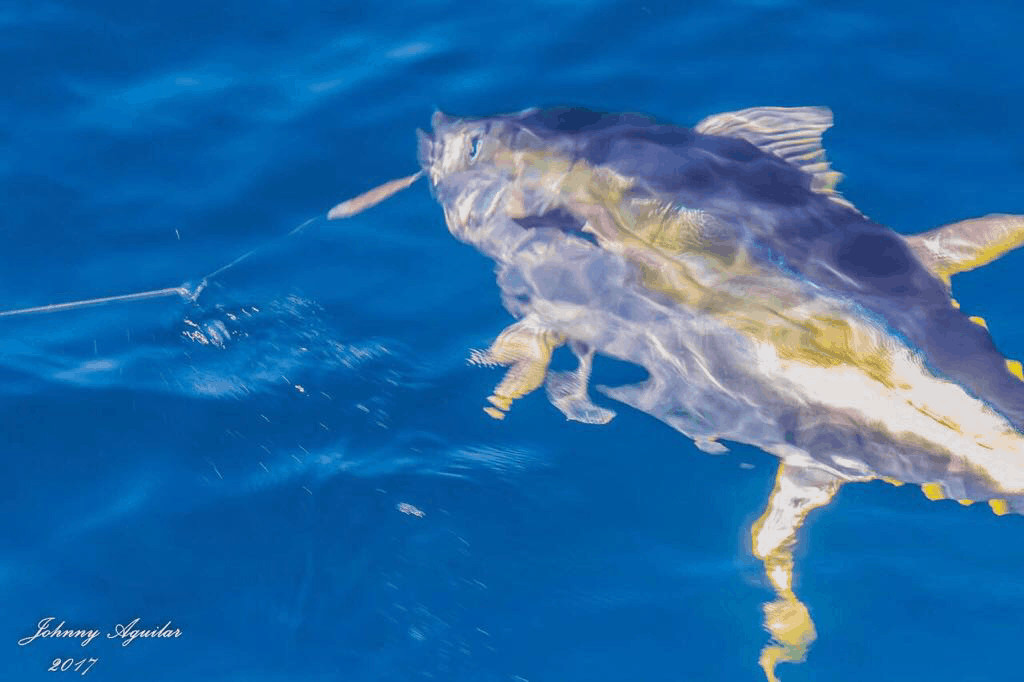When it comes to fishing regulations, changes in Costa Rica are usually slow and deliberate. The government typically requires extensive technical and scientific support before it considers adding or changing fishing laws or agreements. The studies are also usually conducted in Costa Rica territorial waters.
Greenstick fishing, or palo verde as it is known in Spanish, is not a new technique. It has been used successfully for years in Japan and the United States in commercial and sport tuna fishing. The setup, with a tall single center outrigger trailing surface baits behind the boat’s stern, is an effective way to harvest tuna without almost any bycatch.
Studies on local greenstick fishing were directed by fisheries biologist Moises Mug of the Costa Rican Fisheries Federation (FECOP), a Costa Rican sport fishing advocacy group; the Costa Rican Fisheries Institute (INCOPESCA), the government agency in charge of fisheries; and the National Training Institute (INA), the government institution for vocational training including the preparation of students to work in the fishing industry.
This joint project on greenstick fishing began in late 2016 with the goal of offering an alternative method for tuna capture by the national fleet, while reducing bycatch at the same time. Last Month, Mug was appointed to head INCOPESCA by new Costa Rican President Carlos Alvarado.
The required criteria for greenstick fishing were submitted to the government by FECOP in December 2017, approved this past March, and recently published in La Gaceta, the official government daily. Commercially, only yellowfin tuna, bigeye tuna, skipjack tuna, swordfish and dorado (dolphinfish) can be harvested using the greenstick method; all other species must be released alive.

“The possibility is approved that, for a period of 12 months from the publication of this Agreement, any interested party that holds a longline fishing license, whether commercial or medium-scale commercial fishing, may request that INCOPESCA add to their vessel the Green Stick [method]; or completely change the traditional longline for… Green Stick,” the agreements states. “The interested parties must comply with all the requirements established by INCOPESCA for this purpose.”
“These boats will be authorized to carry up to six lures with lines attached to the rod and reel or winch. In no case shall INCOPESCA allow a boat that uses the Green Stick to carry and use other fishing gear in the same boat, except for the traditional longline and the hand rod [rod and reel]. In cases in which INCOPESCA serves as certifier that the catches have been made using Green Stick on a vessel that also has traditional fishing gear, the Institute should require that the vessel carry an observer on board or a technological device that guarantees the traceability of the product. In this case, when the longline vessel has an observer on board, catches of non-target species made with Green Stick should be released alive in the best possible condition.”
Recreational fishing in Costa Rica is divided into two categories: sport fishing and tourist fishing, for those who hire for charter. The new agreement allows boats with tourist fishing licenses to fish green sticks, but not boats with regular sport fishing licenses. The charter boats are allowed to pull three lures at a time attached to rod and reel. No type of winch is allowed.
Changes to better protect Costa Rica’s marine resources are slow to come, and this one regulating greenstick fishing will need to be fine-tuned. But the country also recently joined Global Fishing Watch to combat illegal fishing, and the Constitutional Chamber of the Supreme Court upheld the ban on shrimp trawling for the second time, outlawing the practice. So FECOP and concerned citizens are hopeful the country will continue in this positive direction.
Todd Staley has run fishing sport operations on both coasts of Costa Rica for over 25 years. He recently decided to take some time off to devote full time to marine conservation. Contact him at wetline@hotmail.com.






